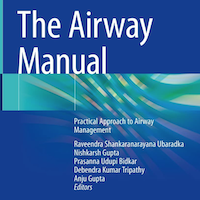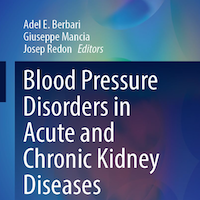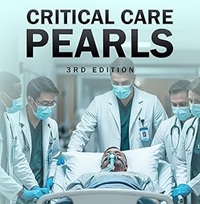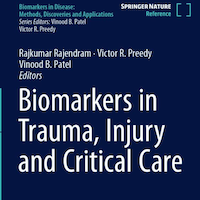Tag: cardiogenic shock
Life After the Pump: Quality of Life in Cardiac Surgery Survivors
Researchers have conducted a major study—the largest of its kind for this specific population—investigating the long-term quality of life (QoL) for patients who survived post-cardiotomy cardiogenic shock (PC-CS). By... read more
VV-ECMO Wins Big: Twice the Survival Odds Over VA-ECMO in Respiratory Failure
A PRISMA-guided systematic review and meta-analysis of 11 studies involving 3,598 patients with severe respiratory failure found that veno-venous ECMO (VV-ECMO) is linked to significantly better survival to hospital discharge... read more
The Dual Deception: Amlodipine and Baclofen Overdose Mimics Brain Death and Triggers Cardiogenic Shock
This case study highlights the profound diagnostic challenge and dramatic presentation of a combined-drug overdose involving amlodipine and baclofen, a novel and previously unreported toxicological combination. Toxicological... read more
Critical Care Ultrasonography Usage in the Management of Cardiogenic Shock
Despite advancements in treatment, cardiogenic shock (CS) still has a very high mortality rate. To improve patient outcomes, a timely diagnosis and the correct management are crucial. This is especially true given the changing... read more
oXiris Treatment Efficacy To Reduce Endotoxin Levels
In this pilot study of patients with CS requiring VA-ECMO, the application of an oXiris did not demonstrate a significant reduction in endotoxin levels at 48 h compared with standard care. While we observed temporal decreases... read more
Prevalence and Outcomes of Shock in Internal Medicine Patients
This retrospective observational study investigated the incidence, management, and outcomes of 125 shock patients admitted to the internal medicine department of a referral university hospital in Bangkok, Thailand, addressing... read more
Levosimendan Role in ECMO for Refractory Cardiac Arrest
Levosimendan use in extracorporeal cardiopulmonary resuscitation (ECPR) did not improve survival. Neurological outcome could be representative of the short- and long-term outcomes. Future well-designed randomized trials... read more
Early Initiated Noradrenaline vs. Fluid Therapy for Hypotension and Shock
The VASOSHOCK trial is a pragmatic, multi-center, superiority, randomized controlled trial investigating early initiation of peripheral noradrenaline in hypotension and shock, investigating the impact of this treatment on... read more
TyG Index And Short-term Mortality in Patients with Cardiogenic Shock
The triglyceride-glucose (TyG) index is significantly associated with short-term mortality in patients with cardiogenic shock (CS) and may serve as a useful biomarker for risk stratification. This retrospective cohort... read more
Diagnostic Value of Chest X-ray in Acute Pulmonary Thromboembolism
This case underscores the diagnostic value of chest X-ray in acute pulmonary thromboembolism (PTE), highlighting the significance of recognizing classical radiographic signs such as Westermark's, Palla's, Fleischner's and... read more
Vasoactive Agents in Cardiogenic Shock Related to AMI and ADHF
Cardiogenic shock (CS) is a heterogeneous condition associated with exceptionally high mortality rates, despite significant advances in the field of cardiology. The primary causes of CS are myocardial infarction-related CS... read more
Resource Utilization Associated with ECMO vs. Microaxial Flow Pump for Infarct-related Cardiogenic Shock
Microaxial flow pump was associated with lower resource utilization compared to venoarterial extracorporeal membrane oxygenation (VA-ECMO). Resource utilization should be incorporated in prospective RCTs and taken into account... read more
Management of Patients Supported with VA-ECMO
Veno-arterial extracorporeal membrane oxygenation (VA ECMO) application in adult patients has significantly increased in recent years. The Extracorporeal Life Support Organization (ELSO) registry includes more than 39,000... read more
Which Antimicrobial Treatment for Patients with Bloodstream Infection During ECMO Support?
Enterococcus sp. was incriminated in about a third of BSI among patients with ECMO support. High appropriateness would only be obtained with piperacilline/tazobactam or carbapenems in association with vancomycin while 3rd... read more
VEGFR1 Genetic Regulation During Sepsis and Association with ARDS Susceptibility
We identified biologically relevant protein quantitative trait loci (pQTLs) of vascular endothelial growth factor receptor 1 (VEGFR1) levels during sepsis in TCF20 and identified CYP2D6 as the gene more biologically implicated.... read more
ICU-AW in Cardiogenic Shock Patients Requiring Mechanical Circulatory Support
This study provides insights into the characteristics of intensive care unit-acquired weakness (ICU-AW) in patients with Cardiogenic Shock (CS) requiring mechanical circulatory support (MCS). ICU-AW frequently occurred... read more
High cDPP3 Predicts Mortality and Need for Organ Support in Cardiogenic Shock
The present study confirms that circulating dipeptidyl peptidase 3 (cDPP3) and its kinetics are associated with 30-day mortality and the need for organ support in a large and diverse population of CS. The prognostic value... read more
Veno-Arterial-Venous ECMO in a Patient Undergoing Dialysis and Having Cardiopulmonary Failure Due to COVID-19
COVID-19 can cause cardiomyopathy, a rare cardiovascular disorder that can lead to cardiogenic shock. The cardiac and respiratory symptoms may not occur simultaneously, and it is possible to switch to veno-arterial-venous... read more
ECLS in Cardiogenic Shock Complicating Acute Myocardial Infarction: Benefit and Harm
Cardiogenic shock is a critical condition that affects up to 10% of patients hospitalized with acute myocardial infarction (AMI), representing the primary cause of death in this group. Recently, frequentist analysis showed... read more
Conservative or Liberal Oxygen Targets in Patients on VA-ECMO
In adults receiving VA-ECMO in the ICU, a conservative compared to a liberal oxygen strategy did not affect the number of ICU-free days to day 28, nor any other measurable patient outcomes up to 6 months after ICU admission.... read more
Effect of Different Shock Conditions on Mesenteric Hemodynamics
The velocity parameters of SMA Doppler ultrasound such as TAMV and PSV can reflect cardiac function. The measurements of SMA RI and PI are correlated with lactate levels, having a positive predictive value for hyperlactatemia... read more
Outcomes for Mechanically Ventilated Patients with Acute Myocardial Infarction Admitted to Medical vs Cardiac ICUs
In this multicenter, national analysis of ICU admission for critically ill patients with AMI, we found that admission to the Cardiac Intensive Care Unit (CICU) was associated with lower in-hospital mortality than patients... read more









